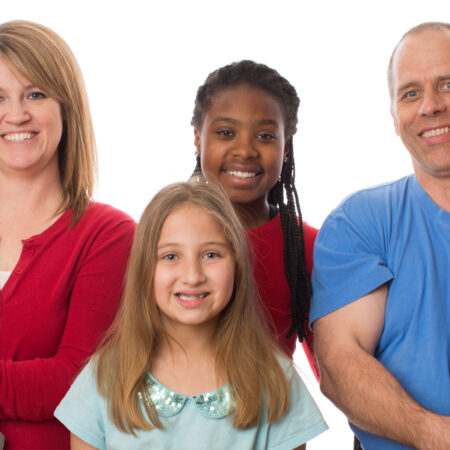Do you desire to parent children or teens, but have not been able to have kids of your own? If so, foster parenting may be a good option for you.
Recently, I spoke with Daniel Vaughan—a licensed therapist at The BabbCenter for Counseling in Hendersonville, Tennessee—about his past experience of working in the foster care system. I’ve listed some of our Q/A conversation below for those who may want to consider foster parenting in their future.
Why should people consider foster care as a parenting option?
Though it can be extremely challenging (with a lot of government involvement), you can make a life-altering difference in the futures of several children—depending on how many you care for over the years.
It’s a great option for those who have raised their own kids but would still enjoy having children around the house to pour into with love, time, and attention.
For children who’ve never been shown what a family should look like, foster parents can show them. I’ve seen a real difference between kids who want to make good choices in their futures who have no example of good parenting, and those with even a temporary example from foster parents. A child attempting to rise above his past has a much better chance of doing that when they have had an example of good foster parents to look back on in their life.
Even though kids grow up and may not make the right decisions when they go out on their own, they always have more options to do it right because they’ve had the chance to see it done in a good way through positive foster parenting experiences.
What is the general process of becoming a foster parent?
Although each state may have more specifics, these are the most common parts in the process:
- Having a home study done on you and your immediate family.
- Obtaining a license to foster in your home.
- Getting trained in both foster parenting specific issues as well as regulations they must follow.
Who all should be involved in the decision to foster parent?
- Both spouses, and any biological kids. They all need a good understanding of what bringing children into the home and then launching them can feel like.
- Any caregivers that routinely watch over the family’s children. They need to understand that they may have to go through some additional monitoring like background checks. States can be specific about those people who are caring for kids in the state’s custody.
- Organizations/activities you plan to involve kids such as a church, sports, clubs, etc… These group leaders need to let you know if they are equipped to handle kids with potentially problematic behaviors.
- Extended family members – grandparents, aunts/uncles, cousins
What are some benefits of foster parenting (as opposed to adopting)?
Adoption brings permanent presence in one child’s life. Foster parents bring temporary—though significant—examples into the lives of potentially many children over the years.
Is it always best to foster before adopting?
No. I wouldn’t say always is better. It depends. There are kids who need a permanent home from the start and can get this from someone who has chosen to adopt. There are also kids whose parents still have a chance to turn their lives around for the better, so these kids would benefit from being in a positive foster environment.
What are some red flags that an individual/couple should NOT be a foster parent?
- If they have an inability to emotionally handle disrespect from a child—big red flag! Fostering can be a challenge but you have to be able to handle the child’s behavior in a calm and loving way.
- Those parents go into the process because they “need” the love of a child. Most likely, they’re not going to receive it. It’s not the child’s fault. Foster parents are often thought of as the enemy by these children—for several reasons.
Is it good/bad/indifferent for children if the fostering parent is single?
- I’ve seen both single and married foster parenting situations to be quite successful.
- If a single foster parent and/or child needs the involvement of an adult male or female in their life experiences, they can connect with other gendered friends (of the foster parent) who can help to fulfill that role.
What expectations should prospective foster parents have going into the process?
- Decisions (made by parents) can be scrutinized by a lot of people such as social workers, attorneys, a child’s biological parents, and agency case managers.
- There is a lot of paperwork because you are caring for someone else’s child. So much has to be documented!
- On the other hand, nobody can prepare you for the joy you experience when you see a child’s future turned around in a short period of time you’re in their life.
What are 3-5 tips you would give potential (or new) foster parents?
- Find a child placement agency that will support you.
- Learn trust-based relational intervention (TBRI) developed by Karyn Purvis and Texas Christian University.
- Find a counselor who is well-versed in TBRI principles. (TBRI practitioner lists are available for various parts of the country.)
- Connect with other foster parents—because nobody else will be as understanding what it’s like for you than others who have had the experience.
- Know that if God wants you to enter this ministry, He will equip you to make it through the rough times.
Daniel Vaughan, a Licensed Professional Counselor/Mental Health Service Provider, received his Master of Arts in Marriage and Family Counseling from Southwestern Baptist Theological Seminary. For 14 years of his counseling career, he provided psychotherapy services for adoptive families, foster children, and juvenile sex offenders in Texas. He is currently a TBRI practitioner in Tennessee.

